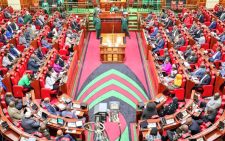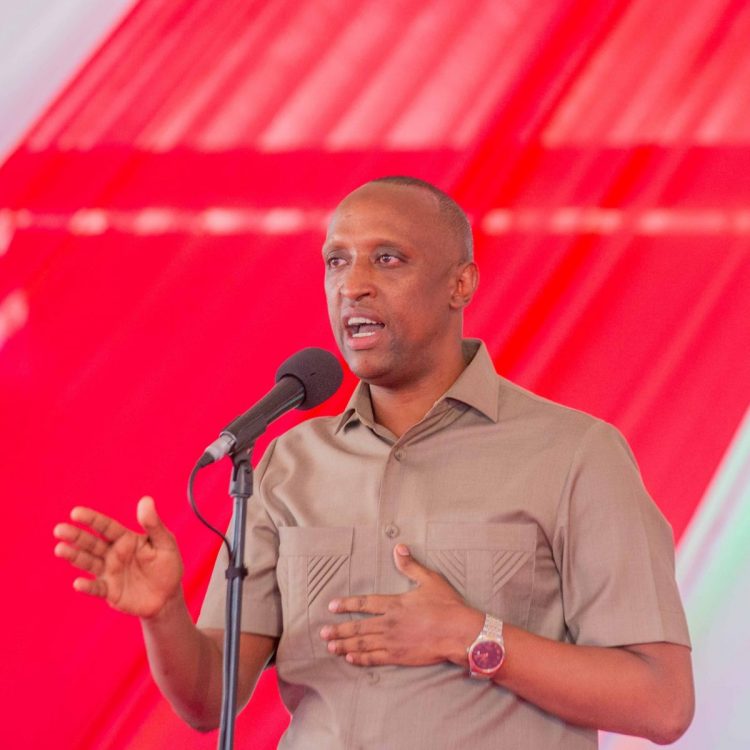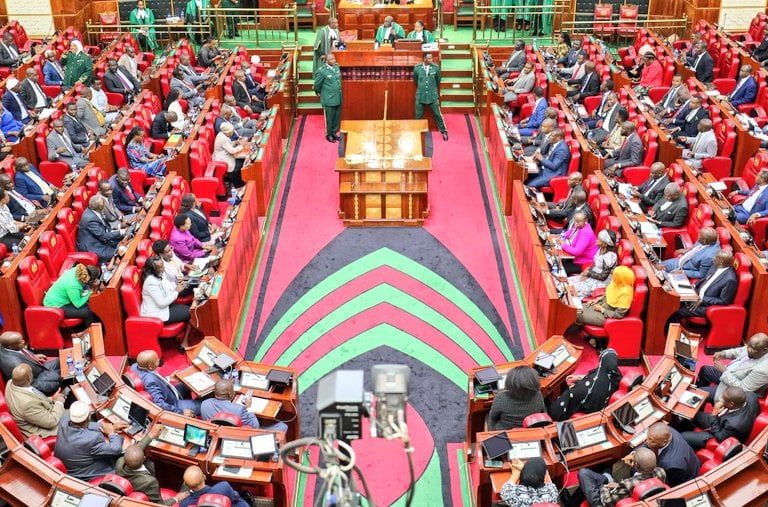Hospitals risk closure over NHIF failure to release funds on time

Several public and private hospitals across the country are struggling in their operations with a handful already closing shop as a result of the financial constraints facing the National Health Insurance Fund (NHIF).
Investigations by People Daily have established that several private, mission hospitals and other health facilities have either closed or scaled down operations due to NHIF’s failure to reimburse them the capitation.
Rural Private Hospitals Association of Kenya (RUPHA) and the Kenya Medical Practitioners, Pharmacists and Dentists Union (KMPDU) yesterday said many hospitals–both public and private–were on their death beds.
Both Rupha and KMPDU disclosed that the government owes all hospitals in the country a cumulative Sh32 billion that has left them swamped in debts while operating on shoestring budgets.
Rupha chairman Dr Brian Lishenga says failure by NHIF to pay for the capitations, has been compounded by the apparent economic downturn to make most health facilities unable to meet costs for operations, salaries and supplies.
Since the beginning of this year, Dr Lishenga discloses, at least 15 hospitals have closed down after the going got tougher, four others have been put up for sale while several others are struggling to remain on their feet. “Things have become extremely tough for our members, forcing a good number of them to close down. Our efforts to save the situation through meetings with the Ministry of Health and NHIF have borne no fruit,” Dr Lishenga told the People Daily by telephone.
Giving a breakdown of some of the facilities that have closed shop, Dr Lishenga says four are in Nairobi, two each in Nakuru and Kisii and one each in Mombasa, Meru, Kirinyaga, Kajiado, Kisumu, Thika, Machakos and Eldoret. The four that have been put up for sale are spread in Kajiado, Nairobi’s Kayole and Athi River. He says most of the collapsed and struggling facilities are Levels Three and Four, that serve the majority of the population.
As a result of the accumulated NHIF debts, most mission and private hospitals have in the recent past been turning away holders of the national health insurer cards, a move that has also seen their revenue to dwindle.
In early January, Mediheal Group of Hospitals made headlines following reports that it was scaling down most of its services and operations due to cash flow problems.
Dr Pallavi Mishra, the Director and co-founder told People Daily that their troubles began in December 2022 when NHIF cut off ties with the facility, signalling the downfall of the once vibrant facility.
“They did not give us any valid reason. Suddenly, there was a 45 per cent drop in the number of our inpatient and outpatient clients,” she recounted.
Teachers’ health cover was also withdrawn from the facility and in January 2023, the facility’s director said the police insurance cover followed suit.
Revenue loss
“This further reduced our revenue by about 25-30 per cent. Now, we had a revenue loss of more than 60 per cent within a period of three months,” she explained. Since then the group has been forced to partially close down her branches in Eldoret, Nakuru, Nairobi’s Parklands and Eastleigh areas.
KMPDU Secretary General Dr Davji Atella says the government must address the state of hospitals together with the welfare of healthcare givers to succeed with its Universal Health Coverage.
“The government needs to prioritise these payments owed to hospitals to bail them out of the paralysis they have found themselves in. As a result of the heavy debts, the majority are unable to pay their workers as well as meet their operational costs,” Dr Atella said.
Contacted, Health Cabinet Secretary Susan Nakhumicha acknowledged the financial challenges faced by NHIF, and attributed the difficulty in disbursing funds from the Treasury to the government’s financial constraints, which have had a significant impact on NHIF’s operations.
Nakhumicha said she had discussed the cash crunch at the national health insurer with the President and had written to her counterpart at the Treasury to expedite the process of disbursing funds.
“Payment is a continuous exercise as and when invoices fall due. We are however taking long in verifying bills to ensure only legit claims are settled. We have a delay of the exchequer but hopefully that whatever is due will be cleared by the National Treasury,” the CS said yesterday.
Dr Lishenga, however, says the number of health facilities either closing down or struggling for survival could be higher since majority have remained silent due to the fear of auctioneers and other creditors going for them.
Dr Lishenga says NHIF is in a financial crisis, a fact that was also corroborate by chief executive Elijah Wachira.
“We are doing everything possible to normalise everything. It is true that the National Treasury has been delaying in disbursing the funds to us as a result of the economic situation, which we hope to stabilise soon,” Wachira told PD.
Due to the financial crisis that has been precipitated by poor contributions to NHIF and National Treasury’s delay to the insurer, NHIF has also either totally defaulted on payments or in most cases, only releases 15 per cent of the amount owed.
“For example, you get a facility being paid Sh200, 000 when it is owed Sh7 million. What can one do with such paltry payment?” Dr Lishenga questions.
He also says that whenever any money is available, NHIF prioritises payments to Levels Five and Six hospitals such as Kenyatta National Hospital (KNH), Moi Teaching and Referral Hospital, Kenyatta University Teaching and Referral Hospital and other major county-based facilities. The Sh32 billion owed to hospitals, Dr Lishenga disclosed, include Sh2.1 billion for Edu Afya that has not been paid since November last year; Sh4 billion for Linda Mama fund; Sh10 billion for general medical and surgical claims; and about Sh6 billion for the civil servants’ comprehensive medical scheme.
Medical scheme
Both private and mission hospitals are owed a combined Sh15 billion.
“It is unfortunate that the National Treasury was not remitting the money for civil servants’ comprehensive medical scheme, forcing the insurer to source for funds from elsewhere to sort part of the payments with health facilities,” said Dr Lishenga.
And now to compound matters for health facilities, all the Sh 32 billion owed to health facilities has been sent to the Pending Bills Verification Committee chaired by former Auditor General Edward Ouko, meaning that the payments will not be made any time soon.
Dr Lishenga says the monopoly involved in the civil servants comprehensive medical scheme has made payments even harder since those facilities insisting on full reimbursements are told to wait while those willing to receive small amounts are sorted.
The civil servant’s scheme is being managed by a consortium of three firms…Minet (main insurance), Bliss hospitals (capitator) and Medical Administrators of Kenya (administrator).
Yesterday, Nairobi Women Rep Esther Pasaris joined the fray in urging the government to release funds to NHIF, claiming that the national insurer owes all public hospitals in Nairobi a cumulative figure of Sh2.1 billion.
She says KNH alone is owed Sh1.6 billion while other public hospitals in the county combined are owed Sh480 million.












